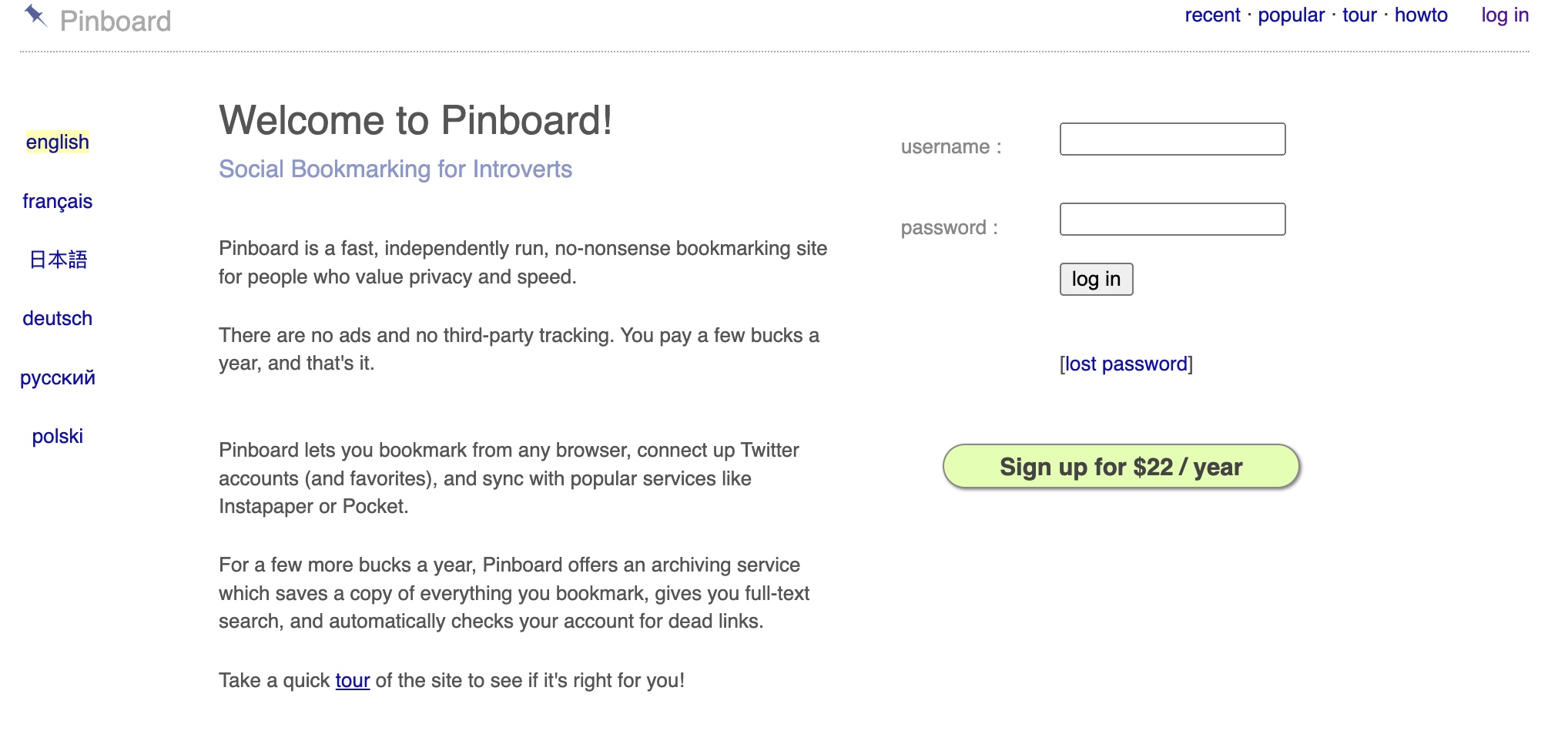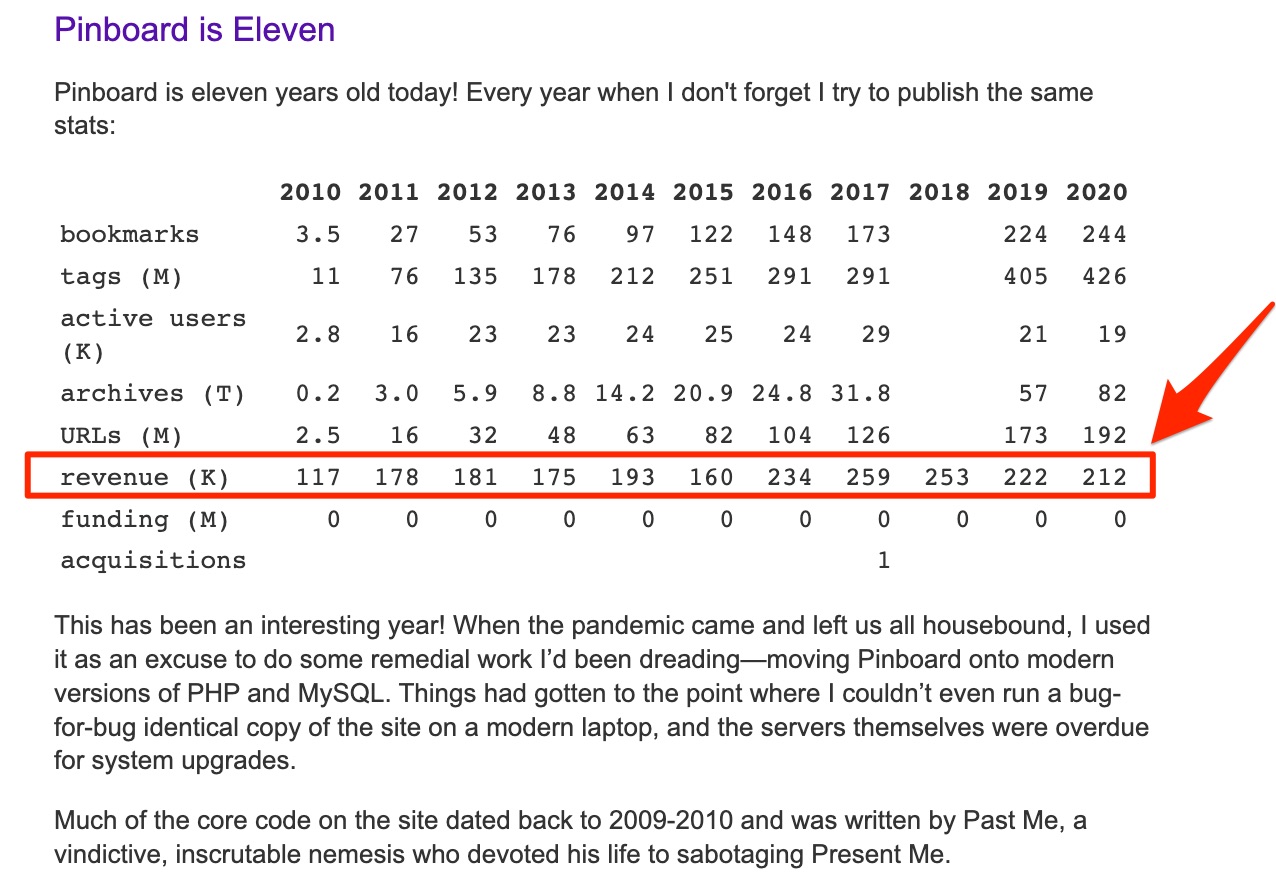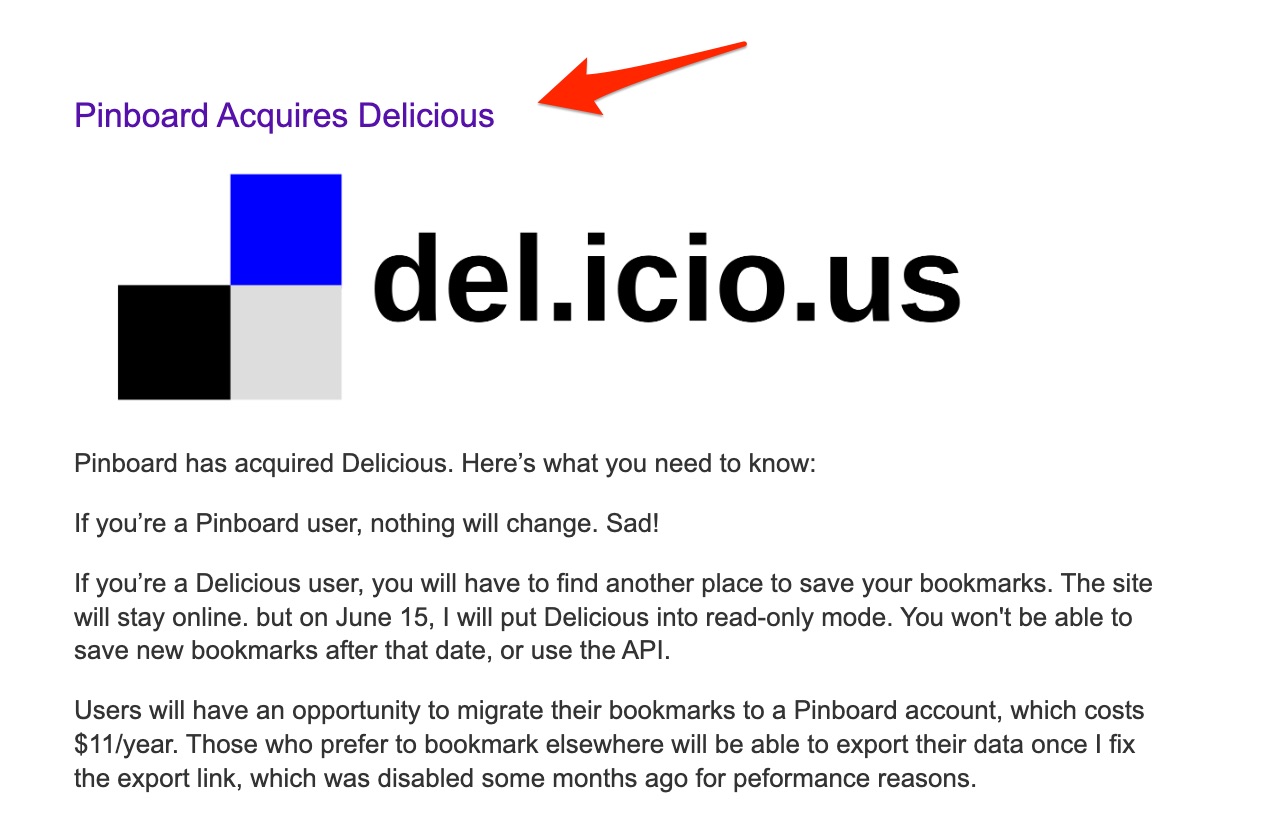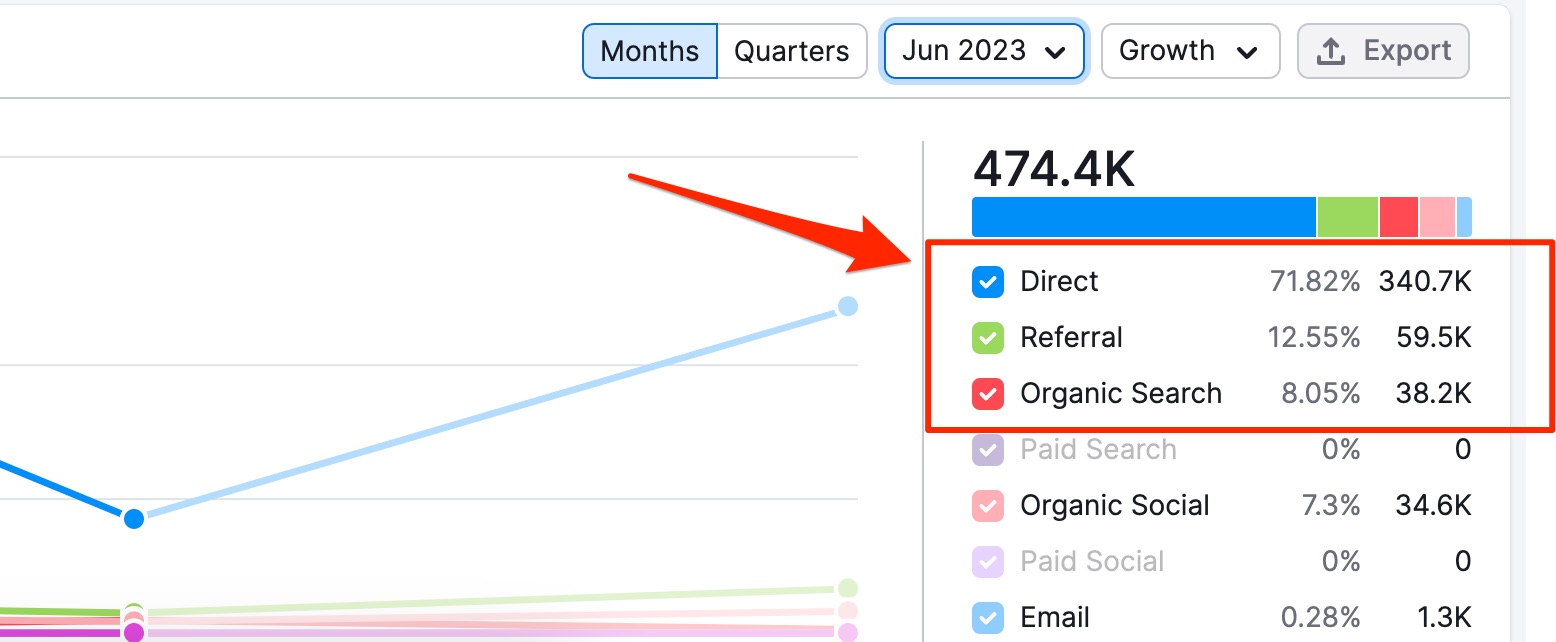Bookmarking Business Makes 200k a Year
About
Pinboard is a premium social bookmarking platform that allows users to store web links along with annotations and easily share them with friends.
For developers seeking creative ideas to make money, Pinboard may appear as a boring business.

The Team
Pinboard was founded in 2009 by solo developer Maciej Ceglowski and remains a one-man business.
Business Model & Revenue
Pinboard operates as a paid service, with users paying $22 per year for access, and there are no free trials offered. Until the year 2020, Maciej Ceglowski used to publicly share revenue numbers on his blog, revealing that Pinboard generated $212,000 in that year.

It's worth noting that in 2017, Pinboard acquired Del.icio.us, a VC-backed social bookmarking service, for $35,000—a significant accomplishment for the one-man "boring" business!


Reference:
- https://blog.pinboard.in/blog/
- https://blog.pinboard.in/2017/06/pinboard_acquires_delicious/
- https://thenextweb.com/news/its-the-end-of-an-era-as-pinboard-buys-and-shutters-del-icio-us
Traffic
The majority of Pinboard's traffic comes from direct sources, which likely indicates existing users. SEO doesn't seem to play a significant role in its marketing efforts.

How did Pinboard attract its users?
In the early days, Pinboard leveraged internet culture called "Fandoms" to attract users. Fandoms were a significant part of internet culture, playing a crucial role in popularizing and promoting various media properties during the 20th century.
Maciej Ceglowski closely connected with fans, even sharing this Google Doc with them, and personally sought feedback for Pinboard.

Reference:
Tech Stack
Pinboard's tech stack follows an old-school approach:
- Backend: PHP
- Database: MySQL
- Frontend: Vanilla Javascript, Vanilla CSS
- Server: Apache
- Server Operating System: Ubuntu
Should You Enter this Space?
While the fandom culture has passed its prime, there are still other social media platforms (e.g., Twitter, Pinterest, Instagram) that can be utilized to build fans and communities. By learning from Pinboard's success, you can create something valuable for your audience and be transparent about charging them for your services.
